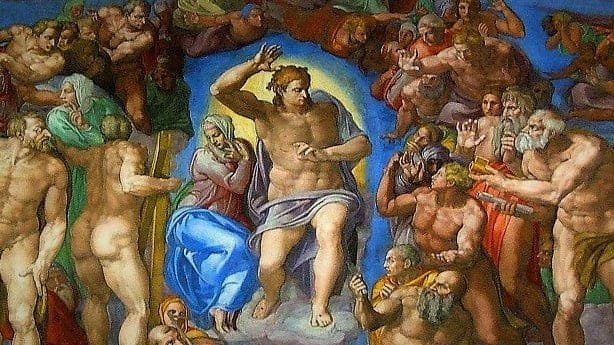Gospel Commentary:
“ONLY ONE THING IS NECESSARY” (Lk 10:42).
GOSPEL OF TUESDAY, 27TH WEEK OF ORDINARY TIME.
Lk 10:38–42
- Our Lord was heading for Jerusalem (Lk 9:5 1) and his journey took him through Bethany, the village where Lazarus, Martha and Mary lived — a family for whom he had a special affection, as we see in other passages of the Gospel (cf. Jn 11:1-45; 12:1-9).
- St Augustine comments on this scene as follows: “Martha, who was arranging and preparing the Lord’s meal, was busy doing many things, whereas Mary preferred to find her meal in what the Lord was saying. In a way she deserted her sister, who was very busy, and sat herself down at Jesus’ feet and just listened to his words. She was faithfully obeying what the Psalm said: ‘Be still, and know that I am God’ (Ps 46:10). Martha was getting annoyed, Mary was feasting; the former coping with many things, the latter concentrating on one. Both occupations were good” (Sermon 103).
- Martha has come to be, as it were, the symbol of the active life, and Mary that of the contemplative life. However, for most Christians, called as they are to sanctify themselves in the middle of the world, action and contemplation cannot be regarded as two opposite ways of practising the Christian faith: an active life forgetful of union with God is useless and barren; but an apparent life of prayer which shows no concern for apostolate and the sanctification of ordinary things also fails to please God. The key lies in being able to combine these two lives, without either harming the other. Close union between action and contemplation can be achieved in very different ways, depending on the specific vocation each person is given by God.
- Far from being an obstacle, work should be a means and an occasion for a close relationship with our Lord, which is the most important thing in our life.
- Following this teaching of our Lord, the ordinary Christian should strive to attain an integrated life — an intense life of piety and external activity, orientated towards God, practised out of love of him and with an upright intention, which expresses itself in apostolate, in everyday work, in doing the duties of one’s state in life. “You must understand now more clearly that God is calling you to serve him in and from the ordinary, material and secular activities of human life. He waits for us every day, in the laboratory, in the operating theatre, in the army barracks, in the university chair, in the factory, in the workshop, in the fields, in the home and in all the immense panorama of work. Understand this well: there is something holy, something divine, hidden in the most ordinary situations, and it is up to each one of you to discover it.. . . There is no other way. Either we learn to find our Lord in ordinary, everyday life, or else we shall never find him. That is why I can tell you that our age needs to give back to matter and to the most trivial occurrences and situations their noble and original meaning. It needs to restore them to the service of the Kingdom of God, to spiritualize them, turning them into a means and an occasion for a continuous meeting with Jesus Christ” (J. Escrivá, Conversations, 114).


